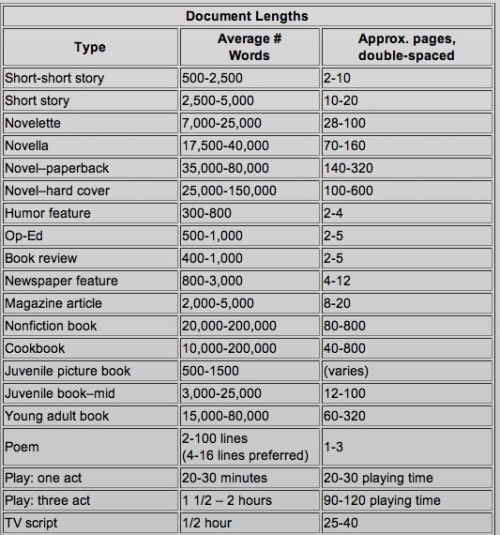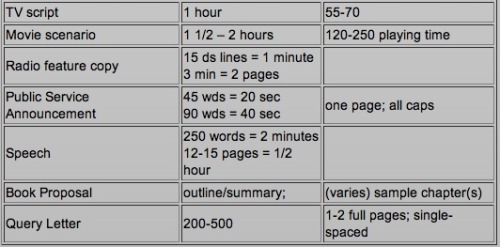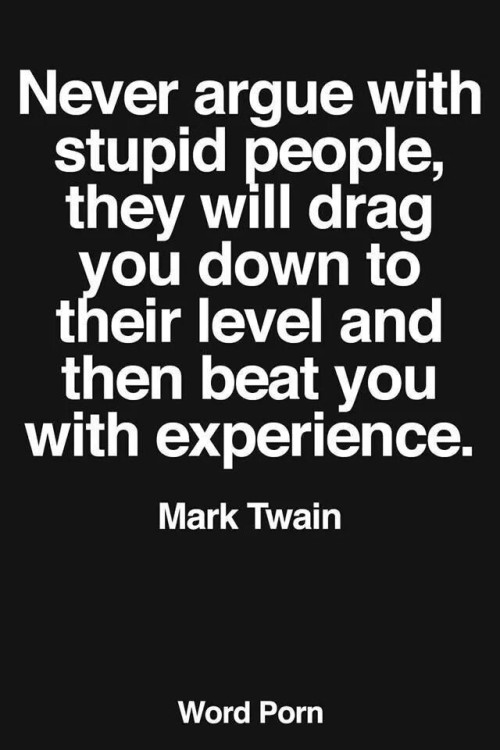Justanothergirlsblog - =A Weird Girl=

More Posts from Justanothergirlsblog and Others
=Tips for writers=
I used to be a really passionate writer and really enjoyed crafting language but it's been years since I've written anything that's not for school. I really want to start writing again but I don't have any story ideas that I'm excited about. What should I do to start writing again?
When you want to start writing again, but aren’t sure how to start:
1. Read a variety of books.
Various authors, various genres, the more you expand your examples the better because it means exposure to more ideas. Don’t be afraid to take up books you may not like since there’s a great deal of learning to be found in why you dislike something, and the depth it gets you thinking can help contribute to your own ideas. The “spite write” is also a thing, where you hate something, or some part of a thing, so much that you go off and do it yourself.
2. Engage with a writing community.
Every writer likes a different level of engagement, but writing communities can be extra helpful at providing idea discussion. It’s also okay if it takes a while for you to find the right one. Some writers are happy with the ones that are for pure fun and keep away from real critique whereas others want detailed critiques and a push to be better. The community you’re part of needs to align with your goals for writing.
3. Write what you know… so know interesting things.
Blatantly stolen from my own TbaBW post, but if you think your life is too boring for inspiration or you want to write about something but don’t know how, then get yourself out there and learn. Find new experiences, ask willing people about their lives, try new things even if you aren’t sure about them, research new subjects; increase your inspiration and well of knowledge so you can write what you know. You’re limited by your own knowledge and creativity, so work hard to make sure that limit does not exist.
4. Find prompts or guided writing exercises.
A lot of writers use prompts or guided exercises to get their writer's muscles moving. Aside from providing the base idea for you, they don’t require commitment and are just a form of practice, but can be turned into more polished stories if it really works out. The best use of these isn’t just reading them and deciding if you instantly like it or not, but taking some time to really think about how they can unfold.
5. Brainstorm.
While there are times when ideas just come to you, it’s common for creative people to have to brainstorm and put real effort into coming up with decent ideas. Brainstorming activities can look like, but aren’t limited to:
Inspiration from music. Some songs tell stories, some paint a scene, some capture a mood, and some are just good background music. Listening to music can be a good source of inspiration for writing.
Talk it out. Ask your friend and family what kind of stories they like to hear and why, or ask them anything about stories that you think will get them to talk. You may not want to write those exact things, but the dialogue can get some ideas thrown out there.
Inspiration from art. Similar to music, take a look at paintings, sketches, or maybe even dances that can provide something. Especially pay attention to the details and what the artist could potentially by trying to convey.
Ways to Develop Plot Ideas (link embedded) covers more idea generation!
6. Productivity can be worked on.
Most writers naturally go through a cycle of interest and disinterest in their projects or even writing in general. I have these linked posts for general info on increasing productivity:
Tips for Improving Writing Productivity, Pt 1
Tips for Improving Writing Productivity, Pt 2
Tips for Improving Writing Productivity, Pt 3
Tips for Improving Writing Productivity, Pt 4
You may also want to check out the Motivation and Discipline tag since there’s a lot of info related to productivity and getting back into writing, especially when you aren’t feeling so great about it.
7. Don’t be afraid of not being great.
It’s been a while since you’ve written and it’s normal for skills to get rusty. Your skills before may not even have been where you wanted to be, but all you can do is compare yourself to where you once were rather than other writers. Writing is personal journey and can be a tough skill to build, so don’t beat yourself up if you have trouble. You have to be bad at something before you’re good at it.
Good luck with your writing!
————————
Thinking of asking a question? Please read the Rules and Considerations to make sure I’m the right resource, and check the Tag List to see if your question has already been asked. If you can give back, please consider supporting me on Ko-fi or via Venmo Username: JustAWritingAid


I wanted to double check that “The Cherry on Top” was a short novel or novella and I found this on uphillwriting.org. I think it’s very informative and hopefully you guys will find it useful!
"I often will write a scene from three different POVs to find out which has the most tension." - Dan Brown #writetip #amwriting
“I often will write a scene from three different POVs to find out which has the most tension.” – Dan Brown #writetip #amwriting
“I often will write a scene from three different POVs to find out which has the most tension.” – Dan Brown #writetip #amwriting — PSLiterary http://twitter.com/PSLiterary/status/1357679116128907269
View On WordPress

Resources for Writing Injuries

Patreon || Ko-Fi || Masterlist || Work In Progress
–
Head Injuries
General Information | More
Hematoma
Hemorrhage
Concussion
Edema
Skull Fracture
Diffuse Axonal Injury
Neck
General Information
Neck sprain
Herniated Disk
Pinched Nerve
Cervical Fracture
Broken Neck
Chest (Thoracic)
General Information
Aortic disruption
Blunt cardiac injury
Cardiac tamponade
Flail chest
Hemothorax
Pneumothorax (traumatic pneumothorax, open pneumothorax, and tension pneumothorax)
Pulmonary contusion
Broken Ribs
Broken Collarbone
Abdominal
General Information
Blunt trauma
Penetrating injuries (see also, gunshot wound & stab wound sections)
Broken Spine
Lung Trauma
Heart (Blunt Cardiac Injury)
Bladder Trauma
Spleen Trauma
Intestinal Trauma
Liver Trauma
Pancreas Trauma
Kidney Trauma
Arms/Hands/Legs/Feet
General Information | More
Fractures
Dislocations
Sprains
Strains
Muscle Overuse
Muscle Bruise
Bone Bruise
Carpal tunnel syndrome
Tendon pain
Bruises
Injuries to ligaments
Injuries to tendons
Crushed Hand
Crushed Foot
Broken Hand
Broken Foot
Broken Ankle
Broken Wrist
Broken Arm
Shoulder Trauma
Broken elbow
Broken Knee
Broken Finger
Broken Toe
Face
General Information
Broken Nose
Corneal Abrasion
Chemical Eye Burns
Subconjunctival Hemorrhages (Eye Bleeding)
Facial Trauma
Broken/Dislocated jaw
Fractured Cheekbone
Skin & Bleeding
General Information (Skin Injuries) | More (Arteries)
femoral artery (inner thigh)
thoracic aorta (chest & heart)
abdominal aorta (abdomen)
brachial artery (upper arm)
radial artery (hand & forearm)
common carotid artery (neck)
aorta (heart & abdomen)
axillary artery (underarm)
popliteal artery (knee & outer thigh)
anterior tibial artery (shin & ankle)
posterior tibial artery (calf & heel)
arteria dorsalis pedis (foot)
Cuts/Lacerations
Scrapes
Abrasions (Floor burns)
Bruises
Gunshot Wounds
General Information
In the Head
In the Neck
In the Shoulders
In the Chest
In the Abdomen
In the Legs/Arms
In the Hands
In The Feet
Stab Wounds
General Information
In the Head
In the Neck
In the Chest
In the Abdomen
In the Legs/Arms
General Resources
Guide to Story Researching
A Writer’s Thesaurus
Words To Describe Body Types and How They Move
Words To Describe…
Writing Intense Scenes
–
Masterlist | WIP Blog
If you enjoy my blog and wish for it to continue being updated frequently and for me to continue putting my energy toward answering your questions, please consider Buying Me A Coffee, or pledging your support on Patreon, where I offer early access and exclusive benefits for only $5/month.
Shoutout to my $15+ patrons, Jade Ashley and Douglas S.!
“You’re always haunted by the idea you’re wasting your life.”
— Chuck Palahniuk



“Sometimes it’s good to be scared. It means you still have something to lose…”
— Meredith Grey
-
 quljnei reblogged this · 1 year ago
quljnei reblogged this · 1 year ago -
 diegoelunico liked this · 2 years ago
diegoelunico liked this · 2 years ago -
 my-infinite-pain liked this · 3 years ago
my-infinite-pain liked this · 3 years ago -
 theoneelva liked this · 3 years ago
theoneelva liked this · 3 years ago -
 00000000000000000h liked this · 3 years ago
00000000000000000h liked this · 3 years ago -
 justridemyface liked this · 3 years ago
justridemyface liked this · 3 years ago -
 simplylucia20 liked this · 3 years ago
simplylucia20 liked this · 3 years ago -
 melanin-queens liked this · 3 years ago
melanin-queens liked this · 3 years ago -
 b-yuself liked this · 3 years ago
b-yuself liked this · 3 years ago -
 luvthyeselfxo liked this · 3 years ago
luvthyeselfxo liked this · 3 years ago -
 swinrandi-blog liked this · 3 years ago
swinrandi-blog liked this · 3 years ago -
 paradisiacalpapi liked this · 3 years ago
paradisiacalpapi liked this · 3 years ago -
 ceepao liked this · 3 years ago
ceepao liked this · 3 years ago -
 stuffliketha liked this · 3 years ago
stuffliketha liked this · 3 years ago -
 shaikhaalz3abi-blog liked this · 3 years ago
shaikhaalz3abi-blog liked this · 3 years ago -
 jhonmax21 liked this · 3 years ago
jhonmax21 liked this · 3 years ago -
 fantasyworldin liked this · 3 years ago
fantasyworldin liked this · 3 years ago -
 empty-angelxx liked this · 4 years ago
empty-angelxx liked this · 4 years ago -
 toodaloo-kangaroo liked this · 4 years ago
toodaloo-kangaroo liked this · 4 years ago -
 maktub190 reblogged this · 4 years ago
maktub190 reblogged this · 4 years ago -
 mylifeasawarriorforchrist liked this · 4 years ago
mylifeasawarriorforchrist liked this · 4 years ago -
 missingthoughtwagon liked this · 4 years ago
missingthoughtwagon liked this · 4 years ago -
 dangerousgentlemengardener liked this · 4 years ago
dangerousgentlemengardener liked this · 4 years ago -
 prettyartgirlsstuff liked this · 4 years ago
prettyartgirlsstuff liked this · 4 years ago -
 thecyndr liked this · 4 years ago
thecyndr liked this · 4 years ago -
 object-of-myfascination liked this · 4 years ago
object-of-myfascination liked this · 4 years ago -
 strangemusicruins reblogged this · 4 years ago
strangemusicruins reblogged this · 4 years ago -
 strangemusicruins liked this · 4 years ago
strangemusicruins liked this · 4 years ago -
 theshadowyplace liked this · 4 years ago
theshadowyplace liked this · 4 years ago -
 raylofiron71 reblogged this · 4 years ago
raylofiron71 reblogged this · 4 years ago -
 raylofiron71 liked this · 4 years ago
raylofiron71 liked this · 4 years ago -
 too9798 liked this · 4 years ago
too9798 liked this · 4 years ago -
 omg-saberkitsune reblogged this · 4 years ago
omg-saberkitsune reblogged this · 4 years ago -
 omg-saberkitsune liked this · 4 years ago
omg-saberkitsune liked this · 4 years ago -
 dpdgwithjandp reblogged this · 4 years ago
dpdgwithjandp reblogged this · 4 years ago -
 dpdgwithjandp liked this · 4 years ago
dpdgwithjandp liked this · 4 years ago -
 g0ldengea liked this · 4 years ago
g0ldengea liked this · 4 years ago -
 skyfullofthoughtsx liked this · 4 years ago
skyfullofthoughtsx liked this · 4 years ago -
 casuallyallurre liked this · 4 years ago
casuallyallurre liked this · 4 years ago -
 xoxbot liked this · 4 years ago
xoxbot liked this · 4 years ago

I'm just a weird girl who likes to read about history, mythology and feminism.
207 posts